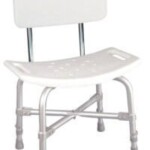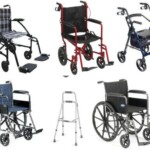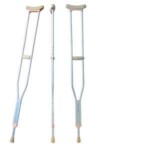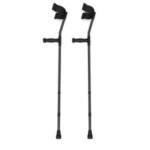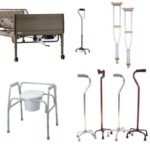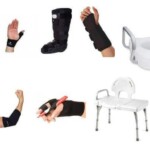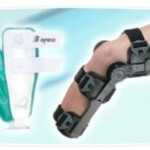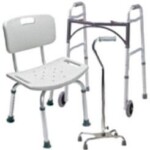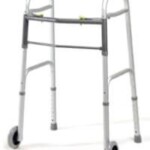Medical Supplies Store in Glendale, California
We carry a wide variety of durable medical equipment and supplies, like wheelchair canes in Glendale, California, in store for you. Our trained staff can also assist you in placing special orders from thousands of selections and brands available for next-day delivery.
- Wheelchairs
- Rollators
- Walkers
- Canes/Crutches
- Grab Bars/Bathtub Bars
- Toilet Safety Rails
- Raised Toilet Seats
- Commodes
- Bath Benches
- Transfer Chairs
- Glucose Monitoring
- Incontinence Products
- Mattresses
- Siderail & Bedding
- Incontinent Supplies
- And More
We can do a special order for most items.
Frequently Asked Questions
What is Durable Medical Equipment (DME), and how is it different from medical supplies?
Durable Medical Equipment (DME) refers to reusable medical devices designed to assist patients with medical conditions or disabilities. These include wheelchairs, walkers, hospital beds, and oxygen concentrators. Unlike disposable medical supplies, which are typically used once and discarded, DME is built for long-term use and often requires a prescription or insurance approval. Medical supplies, on the other hand, include items like bandages, syringes, gloves, and catheters—products used for short-term care and general health maintenance. Understanding the difference is essential, as insurance coverage and purchase requirements vary for each category. If you need DME, your healthcare provider can guide you in selecting the right equipment and determining whether it qualifies for coverage under your insurance plan.
How do I know if I need a prescription for my medical supplies or DME?
Certain medical supplies, such as bandages, compression stockings, and wound care items, can be purchased without a prescription. However, most Durable Medical Equipment (DME) requires a doctor’s prescription, especially when seeking insurance or Medicare coverage. Items like wheelchairs, CPAP machines, oxygen therapy devices, and blood glucose monitors typically need medical documentation to prove necessity. Insurance providers, including Medicare and Medicaid, have strict requirements for covering DME, often requiring a physician’s assessment and authorization. If you’re unsure whether your medical equipment requires a prescription, consult with your healthcare provider or pharmacist to ensure you meet all requirements before making a purchase.
Are medical supplies and DME covered by insurance, Medicare, or Medicaid?
Many Durable Medical Equipment (DME) items are covered by insurance, Medicare, or Medicaid, but coverage depends on the type of equipment, the medical necessity, and the insurer’s guidelines. For Medicare, DME must be prescribed by a doctor, deemed medically necessary, and provided by an approved supplier. Medicaid coverage varies by state but typically follows similar requirements. Some private insurance plans cover a portion of the cost, but patients may need to pay deductibles or co-pays. Disposable medical supplies like wound dressings, catheters, or diabetic test strips may also be covered in limited quantities. It’s always best to check with your insurance provider before purchasing medical equipment to confirm eligibility and potential out-of-pocket costs.
How do I properly maintain and clean my Durable Medical Equipment (DME)?
Proper maintenance of Durable Medical Equipment (DME) is essential for safety, longevity, and hygiene. Mobility aids such as wheelchairs, walkers, and canes should be regularly inspected for wear and tear, with frames wiped down and moving parts lubricated as needed. CPAP machines and oxygen concentrators require frequent cleaning of masks, tubing, and filters to prevent bacteria buildup. Hospital beds and lift chairs should be disinfected regularly, with attention given to electrical components and mechanical adjustments. Diabetic supplies, including blood glucose monitors and insulin pumps, should be cleaned according to manufacturer instructions, with test strips and needles replaced as recommended. If equipment malfunctions, contact the supplier or manufacturer for repair or replacement options.
How do I choose the right medical supplies and DME for my needs?
Selecting the appropriate medical supplies and DME depends on your specific health condition, mobility level, and daily care needs. Consulting a healthcare provider is the best way to ensure you get the right equipment, as they can assess your condition and recommend the most suitable options. If using insurance, verify coverage details before purchasing. Comfort and ease of use are also important factors—adjustable features and ergonomic designs can improve convenience and overall patient experience. Quality and durability should be considered, as medical equipment is a long-term investment in your health. Working with a trusted pharmacy or medical supplier ensures you receive the best products suited to your needs.
Our Pharmacists Are Here for You
Talk to our experienced pharmacists and staff if you don’t see a particular item on our website. We will make every effort to find what you are looking for. Don’t hesitate to reach us anytime!






